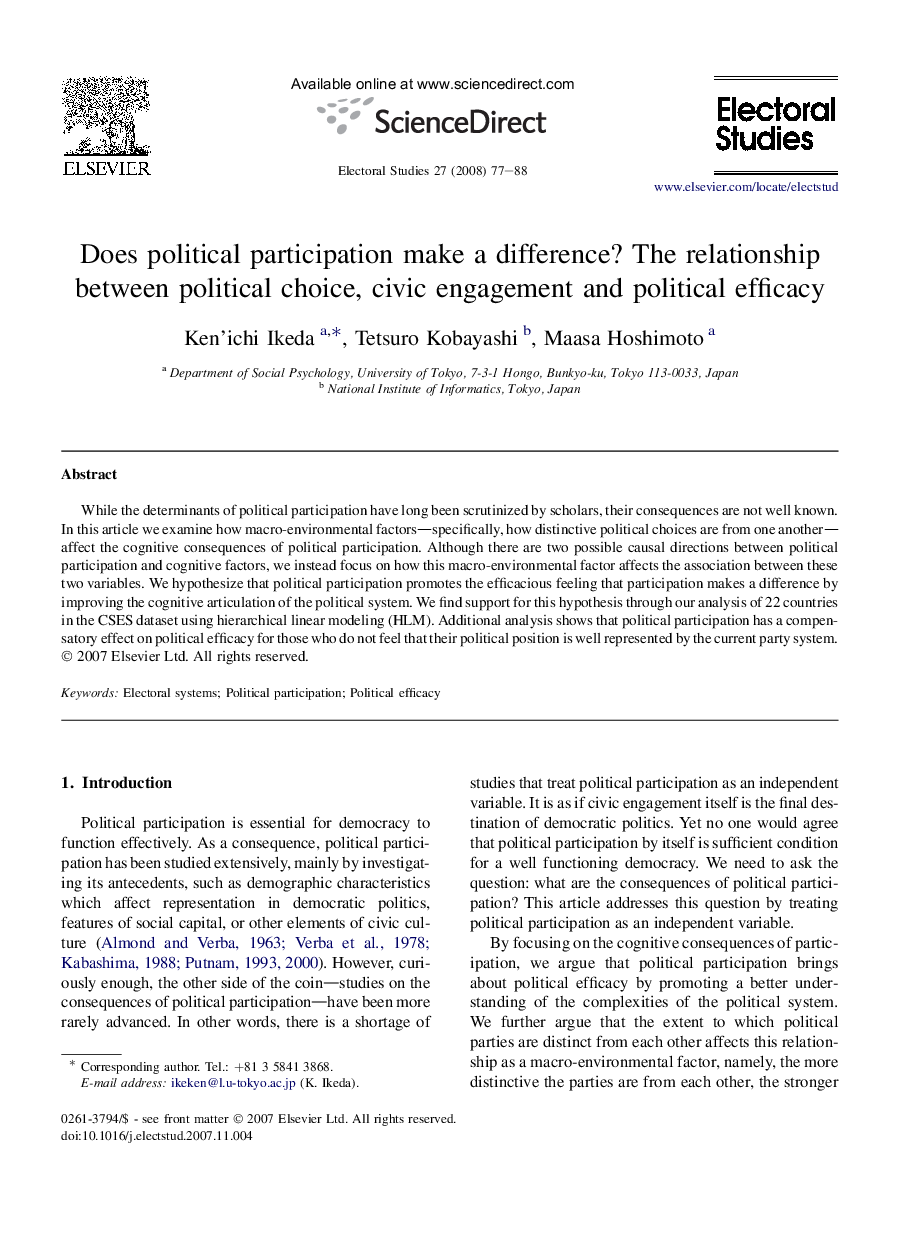| Article ID | Journal | Published Year | Pages | File Type |
|---|---|---|---|---|
| 1052409 | Electoral Studies | 2008 | 12 Pages |
While the determinants of political participation have long been scrutinized by scholars, their consequences are not well known. In this article we examine how macro-environmental factors—specifically, how distinctive political choices are from one another—affect the cognitive consequences of political participation. Although there are two possible causal directions between political participation and cognitive factors, we instead focus on how this macro-environmental factor affects the association between these two variables. We hypothesize that political participation promotes the efficacious feeling that participation makes a difference by improving the cognitive articulation of the political system. We find support for this hypothesis through our analysis of 22 countries in the CSES dataset using hierarchical linear modeling (HLM). Additional analysis shows that political participation has a compensatory effect on political efficacy for those who do not feel that their political position is well represented by the current party system.
